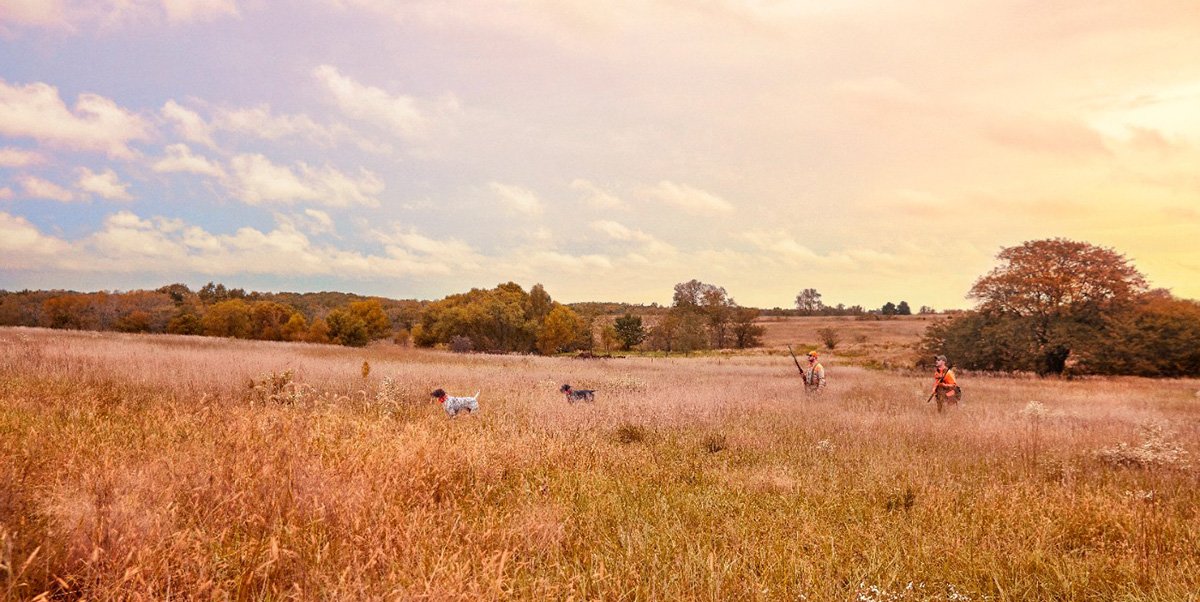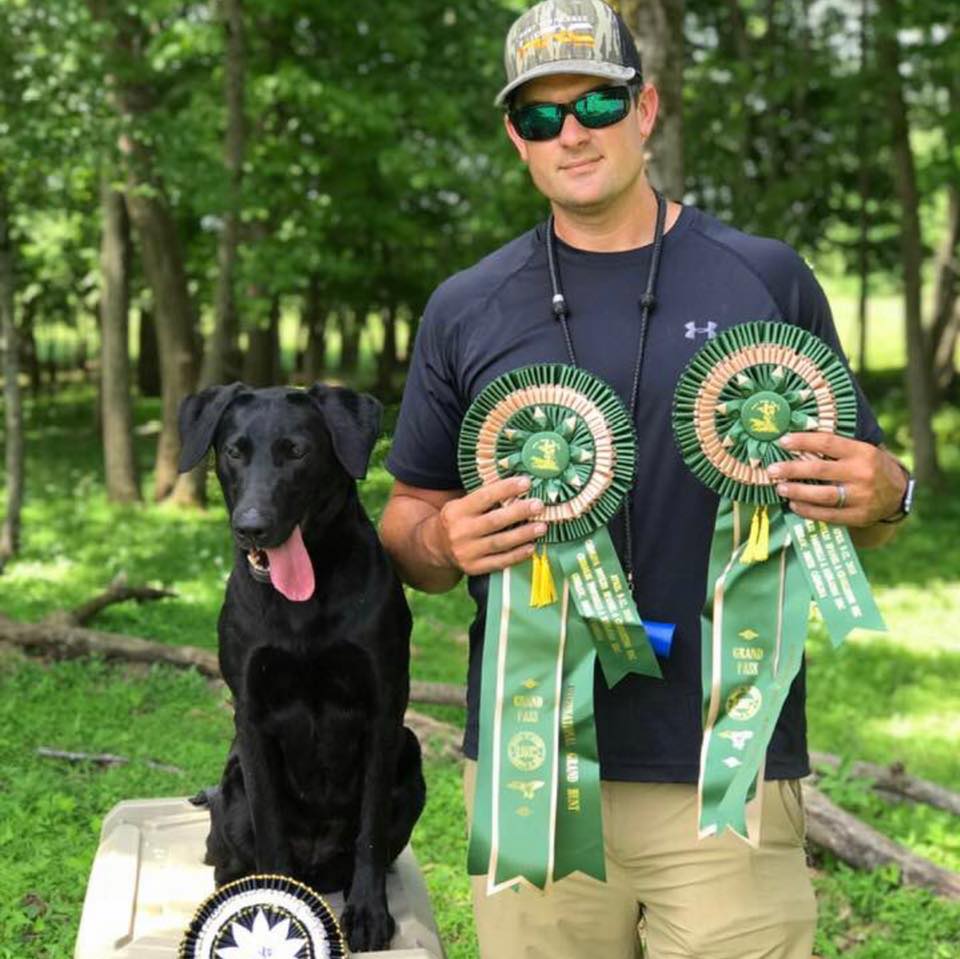Dog Training in the Heat

August 20, 2021
By Rehan Nana
If you own a sporting dog, summer is a tough time of year. It’s the strange conundrum of being that much closer to hunting season, but the summer heat makes it seem even further away. That combination, even for the most experienced dog trainer, can be both difficult and dangerous.
Of course, we always recommend keeping an eye on the pack with Garmin dog training devices, but there’s more to it than that — especially at this time of year. Today we’d like to give you a little background on what happens when a dog experiences overheating, as well as some tips from experienced retriever, bird dog and hound dog handlers.
The Biology of Overheating
Seth Bynum, aka The Bird Dog Vet, is a veterinarian, photographer, outdoorsman and bird dog owner. When he isn’t in the operating room, he’s making his way across the country with his GSPs in search of the best bird hunting. We caught up with Seth to learn more about what happens to your dog medically when it overheats.

“Blood is a combination of red blood cells and protein in a liquid dynamic. When a dog overheats and becomes dehydrated, the liquid dynamic of the blood starts to change and essentially becomes more of a ‘sludge-like’ viscosity. This leads to the dog’s blood, and the oxygen-rich red blood cells it carries, not being able to arrive at the places it needs to be within their body,” said Dr. Bynum. “There are a number of life-threatening effects this can cause that are often irreversible.”
According to Bynum, a dog’s brain and kidneys are two organs he worries about the most, because they are two organs that cannot regenerate after a traumatic event such as being denied necessary blood/oxygen.
The Brain: During heat exhaustion or heatstroke, the brain can be starved of oxygen, which can have negative cognitive effects on your dog. There is also a potential for a blood clot to form, which can lead to other serious effects, such as stroke. Additionally, a dog’s brain operates in a very well-regulated environment. When overheating occurs, the dog’s internal temperature can increase to a dangerous level. This is similar to a very high fever in a person, which can have a similarly dangerous effect.
The Kidneys: At any given time, about 20% of a dog’s blood is filtering through the kidneys. As Bynum notes, kidneys are like a diesel engine in the sense that they always have to have fuel (blood) going through them to keep them primed. If they do not receive the blood they need due to dehydration or overheating, they can have an acute kidney injury, which is essentially kidney damage and is irreversible.
Dr. Bynum’s Summer Training Tips: “One of the most important things to do is keep your expectations in check. In the summer, I’m not trying to get them into prime condition. Instead, I’m trying to keep a good condition baseline. Keep them limber and loose so when fall comes and we start training harder, they don’t have any injuries,” said Dr. Bynum.
Summer Training for Retrievers
Tyler Patterson, owner of Maple Ridge Retrievers, has been around dogs his entire life. After leaving the Marine Corp 11 years ago, he started training retrievers professionally. Since then, he has become one of the top retriever trainers in the country, earning a reputation for honest work and his ability to get dogs through HRC Grand, Master National, Master Amateur and create outstanding hunting dogs.

Patterson trains year-round in Mississippi, so the summer creates unique challenges due to the heat and humidity in the South. “You gotta be real smart about it,” said Patterson. “When a dog starts working hard, their body temperature goes up, which you need to keep an eye on. You and me, we feel fine at 98.6 degrees, but if we’re at 101 degrees, you can be sure we’re running for the medicine cabinet.”
Retriever training may seem simple to other sporting breed owners, but in reality, it is a complex balance of both physical and mental competency to understand, remember and complete complex commands. “In the retriever game, unlike other dogs, you’re not trying to gain minutes. You’re trying to keep them focused so they can make smart decisions. So we keep a close eye how they’re doing not only physically, but mentally as well. This is especially true during the summer heat.”
“Dogs are a lot like people, and training can be stressful. They can get frustrated trying to figure things out, and mental stress adds to their physical stress. Think about when you’re working on a lawnmower outside in July. It’s hot, you lose a bolt, start cursing, then you just start working faster and harder. Before you know it, you get frustrated and you start making mistakes. It’s the same for the dogs,” noted Patterson.
According to Patterson, one of the most important things to do when training retrievers in the South is what you do with your dog not only during training, but after. “You…
